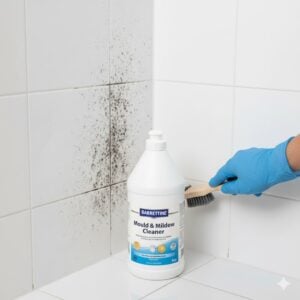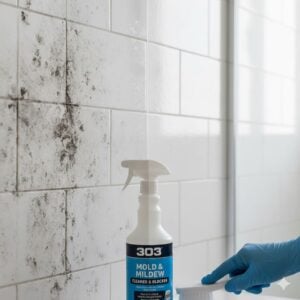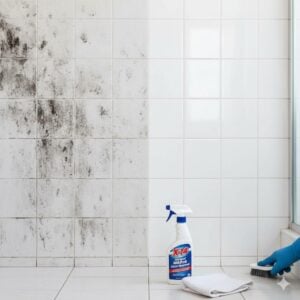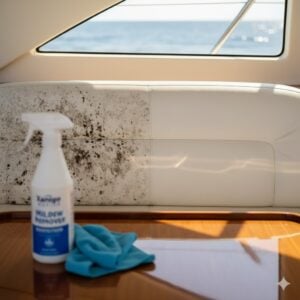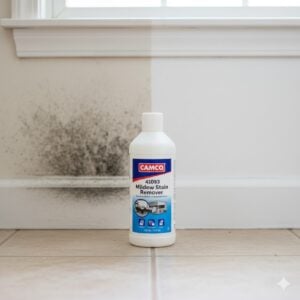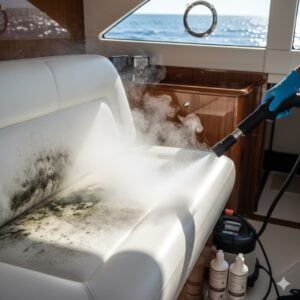Dubai is one of the most advanced cities in the world, but when it comes to natural water sources, the desert location poses a massive challenge. Unlike many countries that rely on rivers or rainfall, Dubai’s water source primarily comes from the sea — through a process called desalination. This advanced yet energy-intensive method converts seawater into drinkable water. To make it safe for daily use, the water goes through several treatment and filtration stages before reaching homes, offices, and buildings. But the story doesn’t end there. In the UAE’s extreme climate, water storage tanks and distribution systems play an equally crucial role in maintaining quality. Unfortunately, when these systems are not properly cleaned or maintained, they can become breeding grounds for bacteria, sediment, and even mold. In this article, we’ll dive deep into where Dubai’s water comes from, how it’s processed, why regular filtration and tank cleaning are essential, and how residents can ensure they’re using safe and clean water every day.
Table of Contents
ToggleWhere Does Dubai’s Water Come From?
Unlike most regions, Dubai doesn’t have freshwater lakes, rivers, or abundant groundwater. Instead, the city depends almost entirely on desalinated seawater from the Arabian Gulf. The Dubai Electricity and Water Authority (DEWA) oversees the production and distribution of water across the Emirate, ensuring it meets international health standards.
Desalination as the Primary Water Source
Desalination is the process of removing salt and other minerals from seawater to make it safe for human consumption. Dubai operates some of the largest desalination plants in the world, using primarily the multi-stage flash (MSF) and reverse osmosis (RO) methods. In MSF desalination, seawater is heated and evaporated, then condensed into freshwater. Reverse osmosis, on the other hand, pushes seawater through semi-permeable membranes that filter out salts and impurities. The result is clean, mineral-balanced water suitable for drinking, cooking, and cleaning.
Currently, over 98% of Dubai’s potable water comes from desalination. The Jebel Ali Power and Desalination Complex, for instance, is one of the largest facilities of its kind, producing hundreds of millions of gallons of water every day. However, desalination has environmental and financial costs — it consumes enormous amounts of energy and releases concentrated brine back into the sea, which affects marine ecosystems.
Groundwater and Recycled Water
While desalination dominates, there are also secondary sources. Groundwater, though limited, is used mainly for irrigation and landscaping. Recycled wastewater is another growing solution in Dubai’s water management system. The city’s sewage treatment plants clean and treat wastewater to a level suitable for use in irrigation, cooling systems, and industrial processes. This approach helps conserve desalinated water for domestic use.
How Water Reaches Homes in Dubai
After desalination, water is distributed through an extensive network of underground pipelines. It travels from treatment facilities to local distribution centers and finally to water tanks installed in residential and commercial buildings. These tanks are crucial because they serve as storage for uninterrupted supply, especially in high-rise buildings where water needs to be pumped to upper floors.
However, once water enters a storage tank, it’s no longer under the constant supervision of municipal treatment. The cleanliness of that water depends on how well the tank is maintained. This is where many problems begin — neglected tanks can lead to contamination, sediment buildup, and microbial growth, which affect both taste and safety.
Why Water Tank Cleaning Is So Important
Even though the original desalinated water from DEWA is safe and clean, the water can become unsafe by the time it reaches your tap if the storage system isn’t properly maintained. Over time, dust, sand, rust, and bacteria can accumulate in the tank, especially in Dubai’s hot and humid environment.
Common Contaminants Found in Water Tanks
Some of the common impurities that can collect in water tanks include:
- Sediment and Sand: Fine particles enter through pipelines or air vents and settle at the bottom of tanks.
- Algae and Mold: When sunlight or heat interacts with stagnant water, it creates an ideal environment for algae or mold to grow.
- Bacteria: Harmful bacteria such as Legionella can multiply in unclean tanks, especially when temperatures rise.
- Rust and Corrosion: Metal components in tanks and pipes can degrade, releasing small rust particles into the water.
When consumed or used for cleaning, contaminated water can lead to skin irritation, allergies, or gastrointestinal issues. That’s why the Dubai Municipality recommends regular tank cleaning at least once or twice a year to maintain water hygiene and safety.
The Role of Water Filtration Systems
Even with municipal treatment and tank maintenance, using additional filtration systems at home adds an extra layer of protection. Water filters remove fine sediments, chlorine, bacteria, and other contaminants that can pass through pipes and tanks.
There are several types of filtration systems used in Dubai households:
- Whole-house filtration systems — installed at the entry point to ensure all water entering the house is filtered.
- Under-sink filters — provide purified water for cooking and drinking purposes.
- Shower filters — reduce chlorine and minerals that can cause skin and hair dryness.
Choosing the right filter depends on your water usage and the quality of your building’s tank. A professional inspection and water test can help determine the most effective solution.
Water Quality Challenges in Dubai
Despite world-class infrastructure, Dubai’s water system still faces some unique challenges. The combination of desalination and extreme heat affects both taste and mineral balance. Some residents report that tap water has a slightly metallic or salty taste, which usually comes from mineral residues or pipeline materials. While the water remains safe, taste concerns push many people to use filters or bottled water.
Another issue is stagnant water in rooftop tanks. Since most buildings rely on stored water rather than direct flow, the water temperature inside tanks can rise above 35°C during summer. This not only affects freshness but also increases the risk of bacterial growth. Without regular cleaning and disinfection, even the cleanest water can degrade in quality.
Water Tank Cleaning and Filtration Cost in Dubai
The cost of professional water tank cleaning varies depending on the tank size, location, and contamination level. Below is a general estimate based on Bio-On Cleaning Services’ experience across Dubai and other Emirates:
| Service Type | Estimated Price (AED) |
|---|---|
| Small Residential Tank (up to 1000 liters) | 250 – 350 |
| Medium Tank (1000 – 5000 liters) | 350 – 500 |
| Large Commercial Tank (above 5000 liters) | 500 – 800 |
| Full Building Tank Inspection + Cleaning | Free inspection before quote |
At Bio-On Cleaning Services, our prices are among the most competitive in the UAE. Still, we always verify the final quote with our expert team before starting work, ensuring fairness and accuracy. We also provide optional filtration checks and pipe disinfection to make sure the entire system is clean and safe from source to tap.
How to Keep Your Water Safe at Home
Maintaining clean and safe water at home requires a mix of good habits and professional support. Here are some practical steps you can take:
- Schedule professional tank cleaning every 6–12 months.
- Flush taps for a few seconds every morning to clear stagnant water.
- Install an appropriate filtration system for drinking and cooking water.
- Inspect rooftop tanks for cracks, leaks, or algae growth.
- Keep tank lids sealed to prevent dust or insects from entering.
These small actions can dramatically improve water quality and prevent potential health risks. Regular maintenance also ensures your filtration systems last longer and perform efficiently.
Conclusion
The main water source in Dubai is desalinated seawater — a technological achievement that turns the Arabian Gulf into a lifeline for millions of residents. However, once this water travels through pipes and storage tanks, its quality depends heavily on how well those systems are maintained. Without proper cleaning and filtration, even treated water can degrade and pose risks to health. Regular tank cleaning, combined with smart filtration, keeps your household water pure and safe. At Bio-On Cleaning Services, we provide professional water tank cleaning and filtration checks across all Emirates at verified, affordable prices. Click the contact button on the right middle of this article to speak with our expert team and ensure your home’s water is clean, healthy, and safe for your family.








